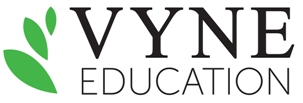Alliance Member:
Code:
To register for this course, go to: http://www.rehabedge.com/detail.aspx?id=5970
Functional Cognitive Activities for Adults with Brain Injury or Stroke: A Sequential Approach
VYNE

Format(s): Home-study
Discipline(s): Physical Therapy / Occupational Therapy / Speech-Language
Contact Hours: 0
Registration Fee: $199.00
Objectives
1. Identify a sequence of functional therapy activities to use with adults with cognitive deficits due to brain injury and stroke.
2. Determine how to plan therapy sessions that emphasize real-life tasks and move away from tabletop activities.
3. Discuss how to select meaningful therapy activities that match the patient?s interest areas and occupations.
4. Determine how to evaluate abilities and document progress by considering performance of real-life tasks in natural environments.
5. Identify how to grade and adjust the therapy environment to accommodate various levels of cognitive deficits.
6. Identify realistic caregiver instructions that support the rehabilitative process in the home
Target Audience
• Occupational Therapists
• Occupational Therapy Assistants
• Physical Therapists
• Physical Therapist Assistants
• Speech-Language Pathologists
• Activity Professionals
• Recreational Therapist
Confirmation Notes
Receive unlimited access from the time of purchase through completion and submission of the online exam. Once the exam is taken the seminar will be available for 30 days before course access expires.
CE Information: Click on the "purchase" button for CEU details.
Agenda
Description
Progressing from the Clinic to the Community
Typical therapy approaches used for rehabilitation of adults with cognitive deficits due to brain injury or stroke target primary cognitive sub-skills (memory, orientation, attention, etc.) in isolation. Therapy methods normally include tabletop activities, computer training, and pencil/paper tasks to improve underlying cognitive impairment. However, the learning associated with these methods does not always translate to the world outside the clinic. Patients may become frustrated with their lack of progress or find themselves unable to perform necessary tasks once they return to their home environment.
This one-day seminar introduces an innovative, alternative, and effective approach to TBI and stroke rehabilitation. It proposes that therapists dealing with cognitive deficits conduct therapy sessions that steer away from work on primary cognitive skills in isolation and switch to having the patient perform comprehensive activities in "real-life" environments. This is accomplished by utilization of a graded sequence of functional therapy activities. The main concept behind this approach is that three global factors influence the patient's "real-life" functioning. These factors include the awareness and management of interpersonal relationships, the environment, and time constraints. Therefore, therapy activities in this sequence have been structured to interweave the three global factors so that the patient interacts dynamically with other people, physical space, and time parameters during sessions. As the patient improves, expectations for sessions change as environmental demands increase and tasks become more complex. The levels of the sequence pertain to patients ranging from inpatient rehabilitation to those in community reintegration. Participants will leave this seminar with a better understanding of how patients' successes in cognitive rehabilitation require a multidisciplinary effort, as well as an emphasis on "real-life" activities, to achieve maximum independence.
Dates and Locations